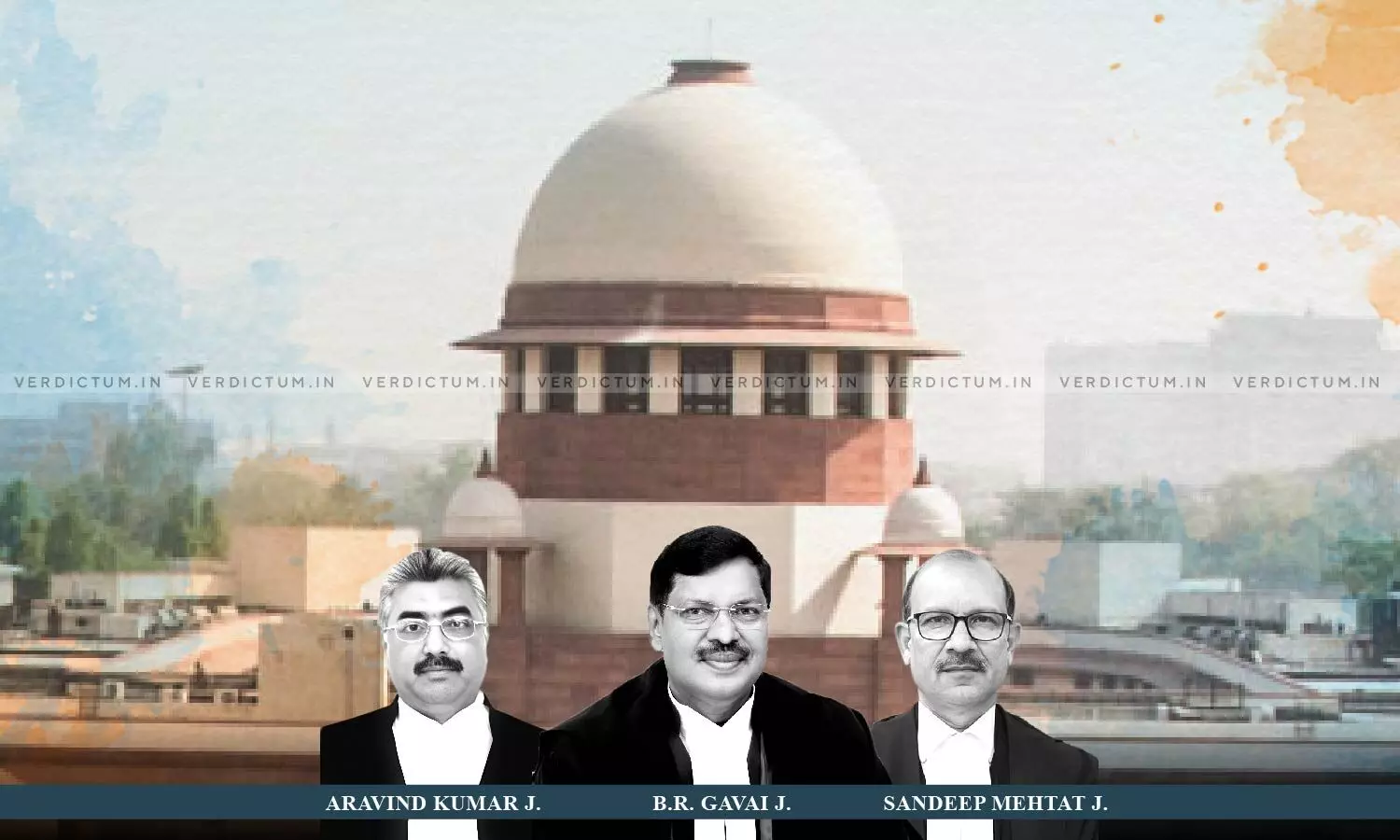
While Considering Plea For Quashing Criminal Proceedings U/S 482 CrPC, HC Can Neither Conduct Mini Trial Nor Enter Into Appreciation Of Evidence: SC
 |
|The Supreme Court reiterated that while examining prayer for quashing of criminal proceedings, the High Court can neither undertake to conduct a mini trial nor enter into appreciation of evidence.
The Court was dealing with a criminal appeal filed by a woman against the order of the Jharkhand High Court by which the proceedings initiated under Sections 323, 498A, 504, and 506 of the Indian Penal Code (IPC) read with Sections 3 and 4 of the Dowry Prohibition Act, 1961 (DP Act) and non-bailable warrants were quashed.
The three-Judge Bench comprising Justice B.R. Gavai, Justice Aravind Kumar, and Justice Sandeep Mehta held, “This Court in catena of Judgments has consistently held that at the time of examining the prayer for quashing of the criminal proceedings, the court exercising extra-ordinary jurisdiction can neither undertake to conduct a mini trial nor enter into appreciation of evidence of a particular case. The correctness or otherwise of the allegations made in the complaint cannot be examined on the touchstone of the probable defence that the accused may raise to stave off the prosecution and any such misadventure by the Courts resulting in proceedings being quashed would be set aside.”
Senior Advocate Anjana Prakash appeared on behalf of the appellant while AOR H.K. Chaturvedi appeared on behalf of the respondents.
Brief Facts -
The marriage of the appellant woman was solemnised in 2018 at Kolkata and as per the prevalent customs at Jamshedpur in 2019. As her husband was residing at Germany, she travelled with him there in 2019. Her grievance was that her father-in-law and mother-in-law were complaining of not having brought sufficient dowry and she was abused for the said reason. Thereafter, her husband also started behaving strangely and she was badly treated and abused by his family members. She was forcibly restrained from entering marital home and was physically assaulted.
Hence, a complaint was lodged by the appellant and on account of notices issued to the respondents by the Jurisdictional Police for the purposes of investigation having not been answered, resulted in the Magistrate issuing non-bailable warrants against them. They were unsuccessful in their attempts to seek cancellation of the same and were arrested. Therefore, a petition was filed in the High Court and the court quashed the proceedings against them primarily on the following grounds:
(i) respondent Nos.3 and 4 herein were arrested without following the due process of law;
(ii) the allegations made in the complaint are omnibus; and,
(iii) that the Court of Jamshedpur does not have jurisdiction.
Hence, the appellant woman filed an appeal before the Apex Court.
The Supreme Court in view of the facts and circumstances of the case observed, “The vague allegation in the complaint can be traced at paragraphs 14 which would clearly indicate that respondents 5, 6 and 7 were present. Not even an allegation of they having indulged in abusing her can be found. There is no whisper of any demand of dowry made by them and as such the impugned order deserves to be sustained to the extent of quashing of the proceedings against respondents Nos.5 to 7.”
The Court further noted that the appellant having been driven out of her matrimonial home continued to reside at her parental home and as such the court at Jamshedpur had jurisdiction.
Accordingly, the Apex Court partly allowed the appeal, set aside the order of quashing of proceedings against respondent nos. 3,4, and 8 and affirmed the one against respondent nos. 5 to 7.
Cause Title- Priyanka Jaiswal v. The State of Jharkhand and Others (Neutral Citation: 2024 INSC 357)
Appearance:
Appellant: Senior Advocate Anjana Prakaash, AOR Sameer Kumar, Advocates Niraj Dubey, Pradum Kumar, Anuj Prakash, Somi Sharma, Shah Rukh Ahmad, Mandeep Baisala, and Shahrukh Ahmed.
Respondents: AOR H. K. Chaturvedi, Advocates Anjali Chaturvedi, Sagar Chaturvedi, Megha Chaturvedi, Ramaditya Jadon, Vishnu Sharma, AOR Madhusmita Bora, Advocates Dipankar Singh, and Anupama Sharma.